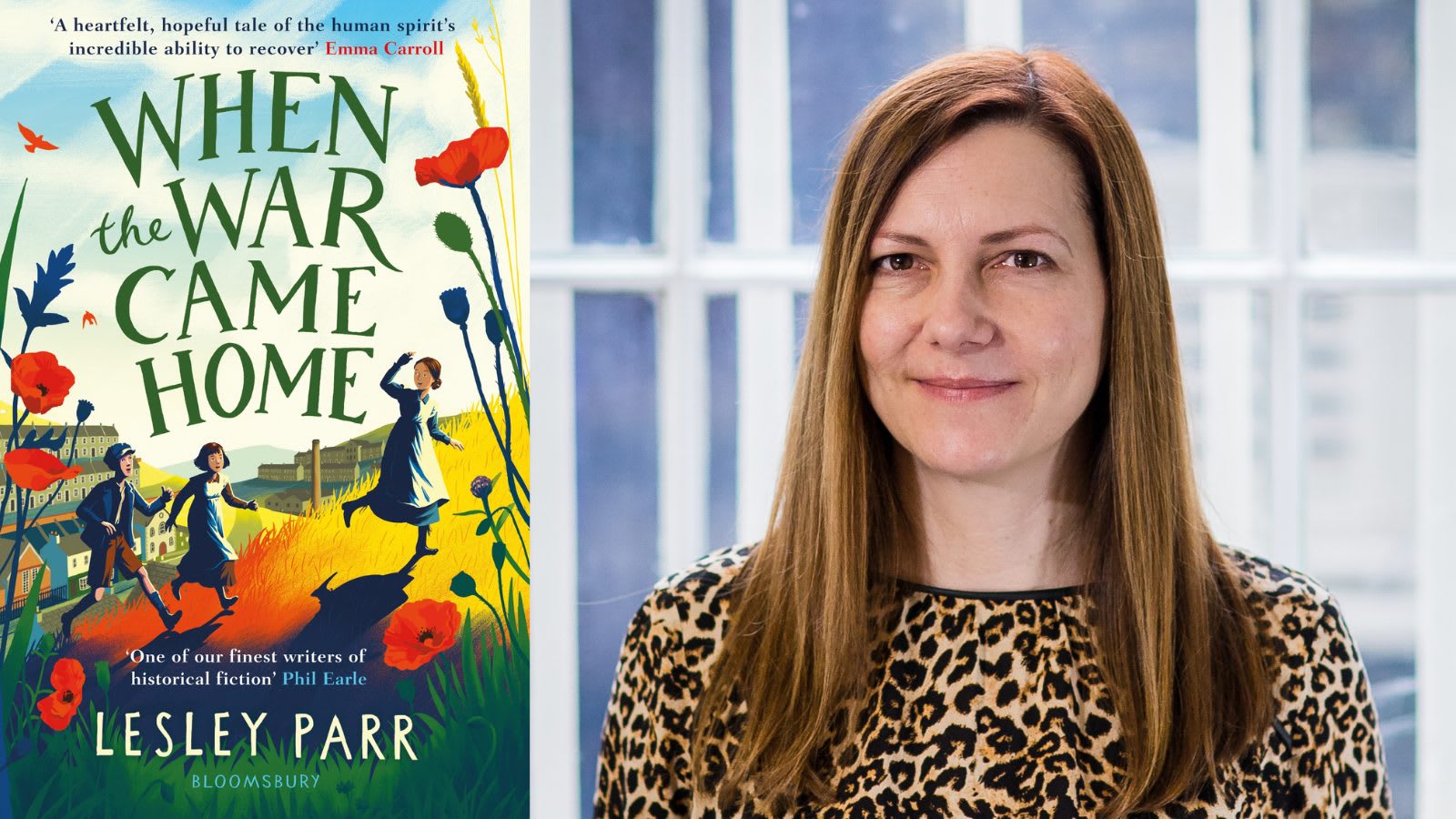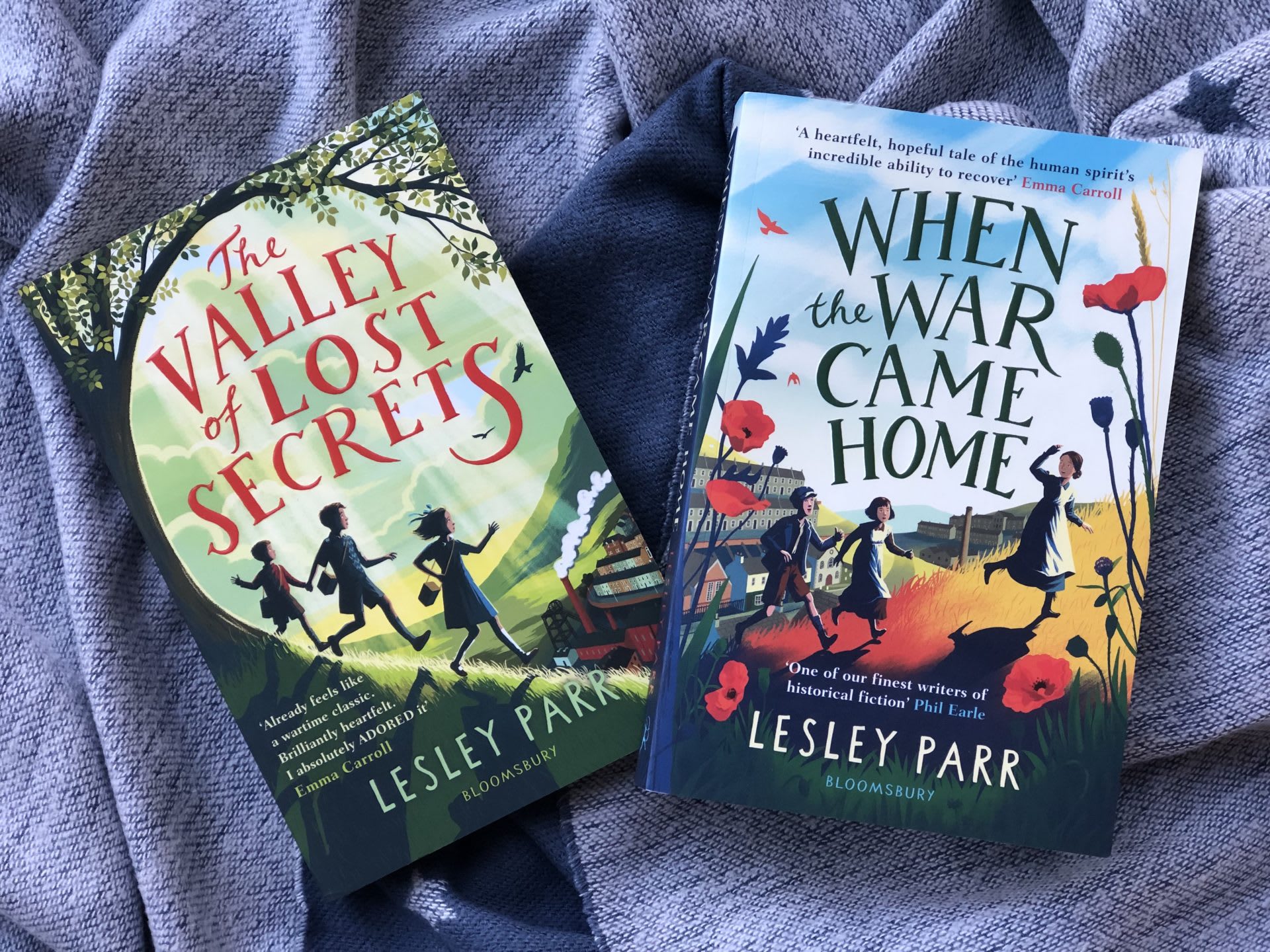Lesley Parr and the story behind When The War Came Home

Lesley Parr is the author of two stunning historical fiction novels for young readers. Her latest book, When The War Came Home, tells the story of Natty who moves to a new village not long after the end of the First World War and learns about the impact that the conflict still has on many people’s lives. You can read my review here.
Lesley very kindly took the time to talk to me about the research behind her new book, the importance of historical fiction, and why Wales plays such an important part in her storytelling.
Lesley, this is your second novel set against the backdrop of a World War. What draws you to writing historical fiction?
I’ve always liked history, especially social history. I’m interested in people who lived through certain times and events. As a character-driven writer, I think this makes for a good match.
I would love to hear why you think it is important for children to learn about history through fiction?
I hope it makes child readers today see that people never really change, not fundamentally. The world changes around us, but people are people. That might help children to step into a character’s shoes for a while and see how it feels – make a connection.
You have managed to pack so many different themes into When The War Came Home. From trade unions and workers’ rights to poverty and trauma, the book is full of important subjects for young readers to understand and discuss. How did you carry out your research for this book?
I thought I’d write a predominently feminist story, and was researching factory life for women and girls when the characters led me in a different direction – they do that because I’m not a planner. I used books and documentaries and the internet. And I also read WWI war poetry to try to get close to the experiences of my soldiers. Perhaps most important of all, two men I know generously shared their experiences of PTSD and amnesia with me. Their insights were invaluable.
The lead characters in When The War Came Home are cousins Natty and Nerys. Their actions are driven by their compassion for others, and they take it upon themselves to help those in need. Why is empathy such an important part of fiction?
It’s part of what connects a reader to the story through the characters. And it doesn’t have to be about big things…it can be the smallest of actions. You never know what will improve someone else’s day. But I hope the empathy in my stories feels implicit; a side effect if you like… I’m not a fan of overt moral messaging.

Your voice as a Welsh writer is very strong and your stories have a clear sense of place. I was so pleased to see you include Welsh words within the dialogue of the book. Can you tell me about the importance of making sure that books embrace different national identities?
I suppose it’s partly the now-familiar notion of children seeing themselves in books, but, for me, it’s also about representing my country and my people. In The Valley of Lost Secrets it was in some ways easier as Jimmy is English and any non-Welsh reader could experience Wales alongside him. With When The War Came Home, Natty is Welsh so she can’t go around noticing the Welshness all the time. It had to be woven in differently. But I loved writing from both points of view. The biggest seal of approval is when Welsh readers think I’ve got it right!
Working class voices are also central to your work. Coal mines, factories and the communities that surround them play an important role in both of your books. When The War Came Home might be the first time that a lot of readers are introduced to the idea of unions and strikes. Do you feel a responsibility to present these concepts to new audiences?
Not a responsibility as such – I believe an author’s most important job is to entertain – but if children (and adults) learn a few things along the way,or consider the world a bit differently, then that’s a bonus. After my publicist read this book, she joined a union and that was a very special moment for me. I don’t set out to raise issues, but I think they have naturally appeared in my work because they’re central to who I am and how I was brought up.
Thank you Lesley for such brilliant answers. I can’t wait to see what you do next.
When The War Came Home and The Valley of Lost Secrets are available now and you can find out more about Lesley Parr on her website.
Both of these books are published by Bloomsbury Books and they have covers and internal illustrations by David Dean.
Disclaimer: This page contains affiliate links to bookshop.org and will redirect you to their website. If you make a purchase I will make a very small commission at no extra cost to you and they also share their profits with independent bookshops around the UK.